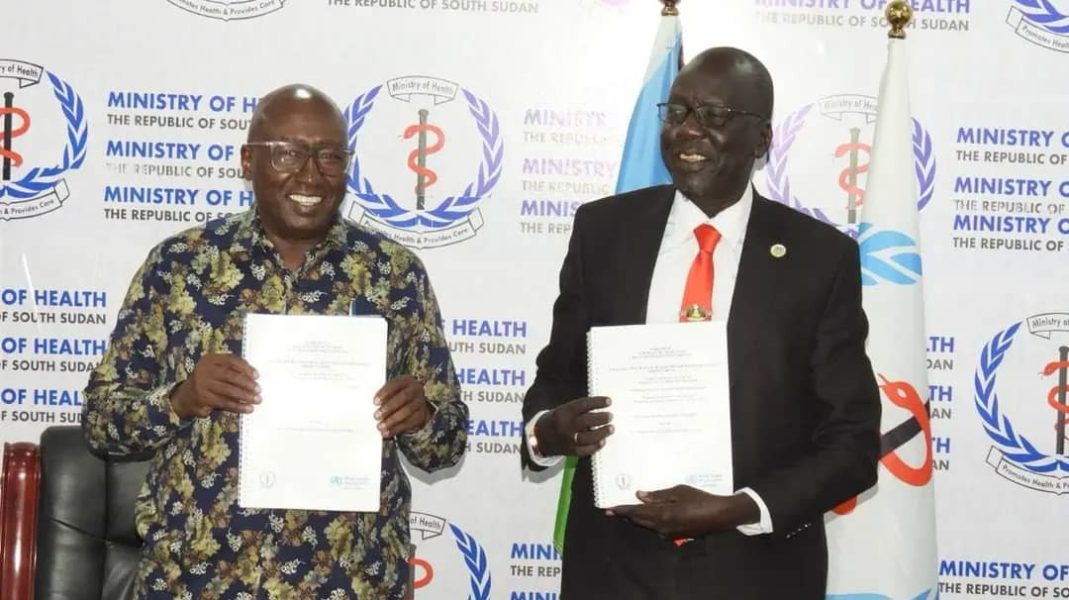
The Ministry of Health (MOH) has entered into a strategic partnership with the World Health Organization (WHO) to launch the Health Sector Transformation Project (HSTP), a landmark initiative aimed at strengthening South Sudan’s healthcare system.
Dr. Anin Ngot Mou, the undersecretary of the Ministry of Health, in a statement released after signing a Memorandum of Understanding on Wednesday, underscored the importance of this collaboration.
“This project marks a significant milestone as the Ministry assumes a leading role in such a comprehensive endeavor. We are committed to working alongside WHO and other partners to enhance governance, broaden health services, and establish a sustainable healthcare system,” he stated.
Dr. Humphrey Karamagi, WHO’s representative in South Sudan, stressed the project’s pivotal role in addressing the country’s unique healthcare challenges.
“WHO will collaborate closely with all stakeholders under the Government’s leadership to ensure successful implementation of the HSTP and advance Universal Health Coverage for the people of South Sudan,” he said.
The HSTP seeks to address South Sudan’s persistent health challenges, which include conflict, inadequate infrastructure, and the impacts of climate change.
WHO data reveal that South Sudan has the world’s highest maternal mortality rate of 1,223 deaths per 100,000 live births, alongside stagnant newborn and child mortality rates of 64 and 99 per 1,000 live births, respectively.
Integrating various donor-funded programs, such as the Health Pooled Fund (HPF), COVID-19 Emergency Response, and Health Systems Strengthening projects, the three-year HSTP is supported by the Health Multi-Donor Trust Fund.
Contributions from the World Bank, FCDO, Canada, and the European Union have amounted to USD 12.7 million.
Under the theme “Together Toward Achieving Better Health Outcomes,” this unified approach reflects the Government’s commitment to transforming South Sudan’s health sector, improving health outcomes, and building resilience amid ongoing humanitarian challenges.

